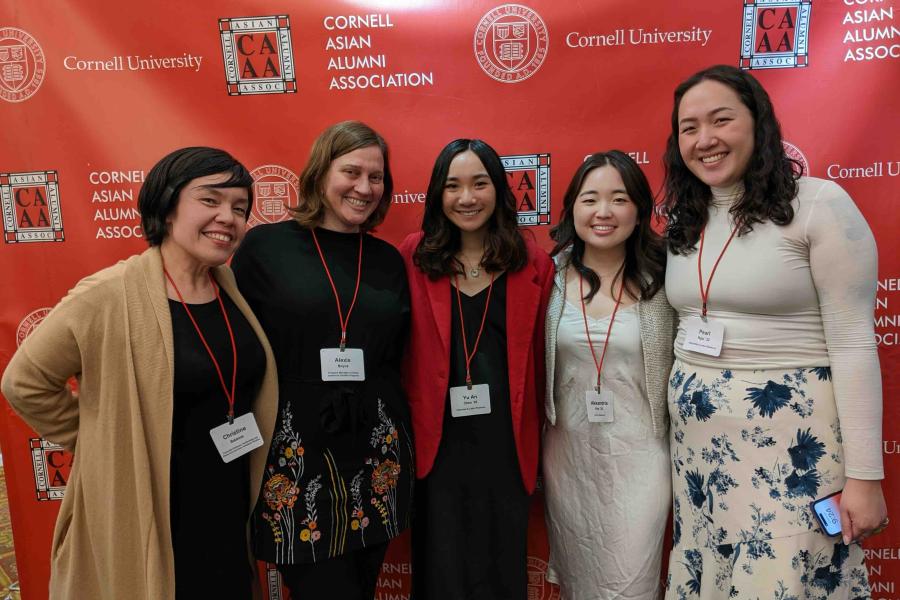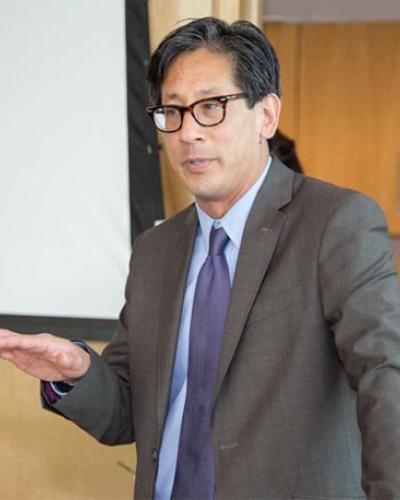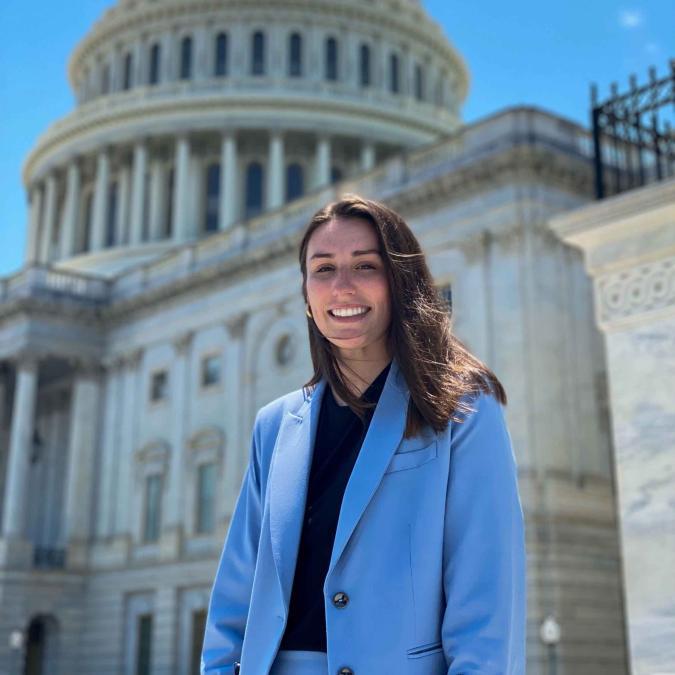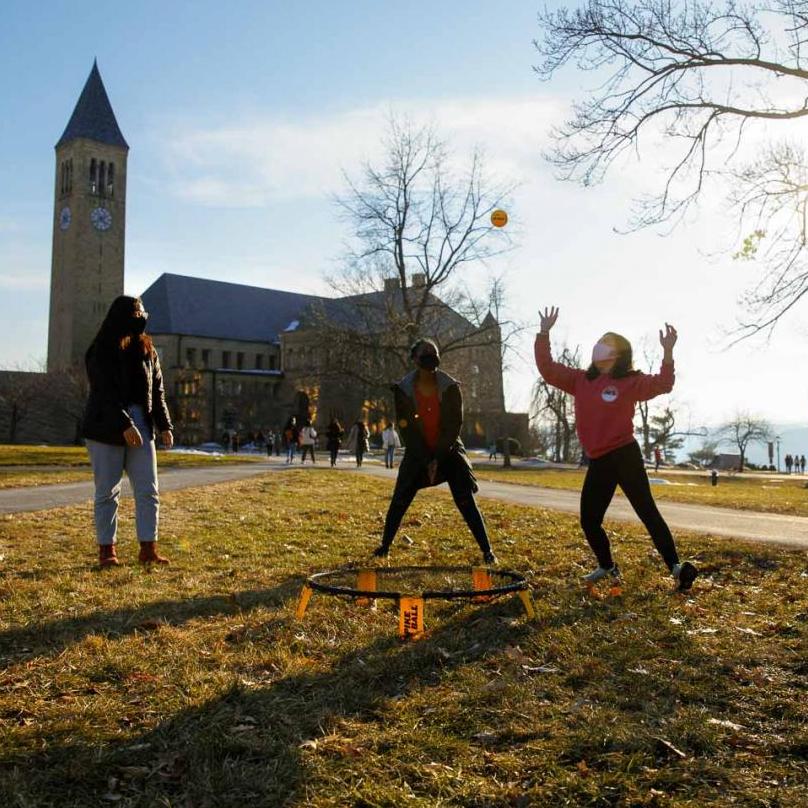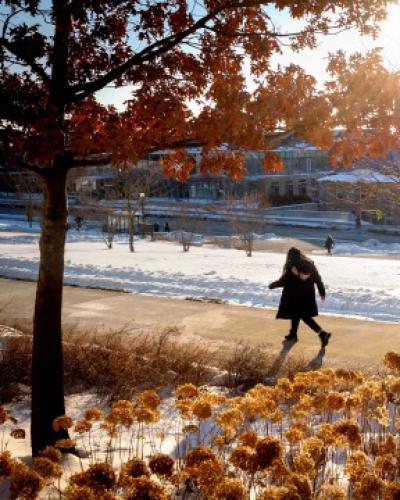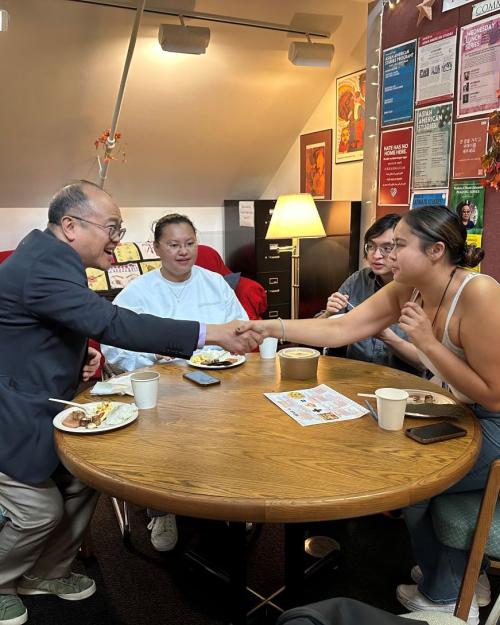A new $500,000 alumni gift to the Asian American Studies Program (AASP) will allow the program to increase the number of special events and speakers it brings to campus and provides support for an ongoing oral history project, which connects current students to alumni and tells the story of the history and activism that led to the establishment of Cornell’s AASP, the first such program in the Ivy League.
The gift has also helped faculty make plans to leverage more alumni support for a new postdoctoral fellowship program.
“The endowment is a wonderful testament to the value of what we are teaching and the impact it’s having,” said Christine Bacareza Balance, associate professor of performing & media arts.
The new funding will allow for the expansion of public programs such as last fall’s “Asian Americans & Affirmative Action” event, which was planned by doctoral student Juhwan Seo in conjunction with AASP faculty and alumni.
“Since the disappointing Supreme Court decision last summer, I have been working with civil rights organizations and campus leaders to educate students about the consequences of the Supreme Court decision and potential avenues for student activism regarding educational equity and racial justice,” Seo said. “The event helped Cornell students, faculty, and staff to learn about how Asian Americans have been used as a wedge against other communities of color to dismantle civil rights protections and racial justice policies.”
On April 23, program staff and faculty are bringing Helen Zia to campus as the keynote speaker for Cornell’s inaugural Asian Pacific Islander Desi American (APIDA) History Month event. Zia is an activist for human rights, peace, worker’s rights and women’s rights. She was featured in the Academy Award-nominated documentary, “Who Killed Vincent Chin?” and was profiled in Bill Moyers’ PBS series, “Becoming American: The Chinese Experience.”
A postdoctoral fellowship would bring in a scholar studying social sciences or perhaps the intersection between Asian American studies and public policy, politics or public health, Balance said.
“We’d like to bring in someone whose work engages with the community and who is working with quantitative data, which has been missing in some of our conversations in the humanities,” she said.
That researcher could work with members of the Asian and Asian American communities surrounding Ithaca and collaborate with students and faculty from other departments who are already engaged in similar research projects. “I hope the Asian American Studies Program could be a hub for that research,” Balance said.
Seo, who taught a course in fall 2021, Labor and Migration in Asian America, said AASP courses fill up quickly and students are hungry for additional offerings.
“A postdoctoral fellow would be able to teach innovative classes, bring promising researchers from other institutions, and invite students to research opportunities,” he said.
Pearl Ngai ’23, who minored in Asian American studies, said the addition of a postdoctoral fellow would bring more visibility to Asian American studies on and off-campus.
“I think the implementation of this program at Cornell will serve as an encouraging reminder to younger Asian American students considering a path in academia that the study of their history and culture is valued and taken seriously,” she said.
Ngai took many courses offered by the program and also interned at Cornell’s Asian and Asian American Center.
“The coursework I took through the AASP has fundamentally—and positively—shaped my perspective on my inherited history/cultural heritage, my politics, and my passion for social justice,” she said.
Yu An Chen ’24 was inspired by her introductory AASP class to help coordinate the BeComing lunch series, which provides students with a platform to reflect on their lived experiences.
“Reflecting upon articles I’ve read in AASP classes, like ‘Shop Talk and Everyday Sites of Resistance to Gentrification in Manhattan’s Chinatown’ by Diane Wong (PhD ’12), I’ve learned how academics and scholars built movements alongside the Chinatown community and I see a future where AASP at Cornell can also continue to build partnerships with local AAPI organizations and utilize our skills as scholars to help strengthen their missions,” she said.

